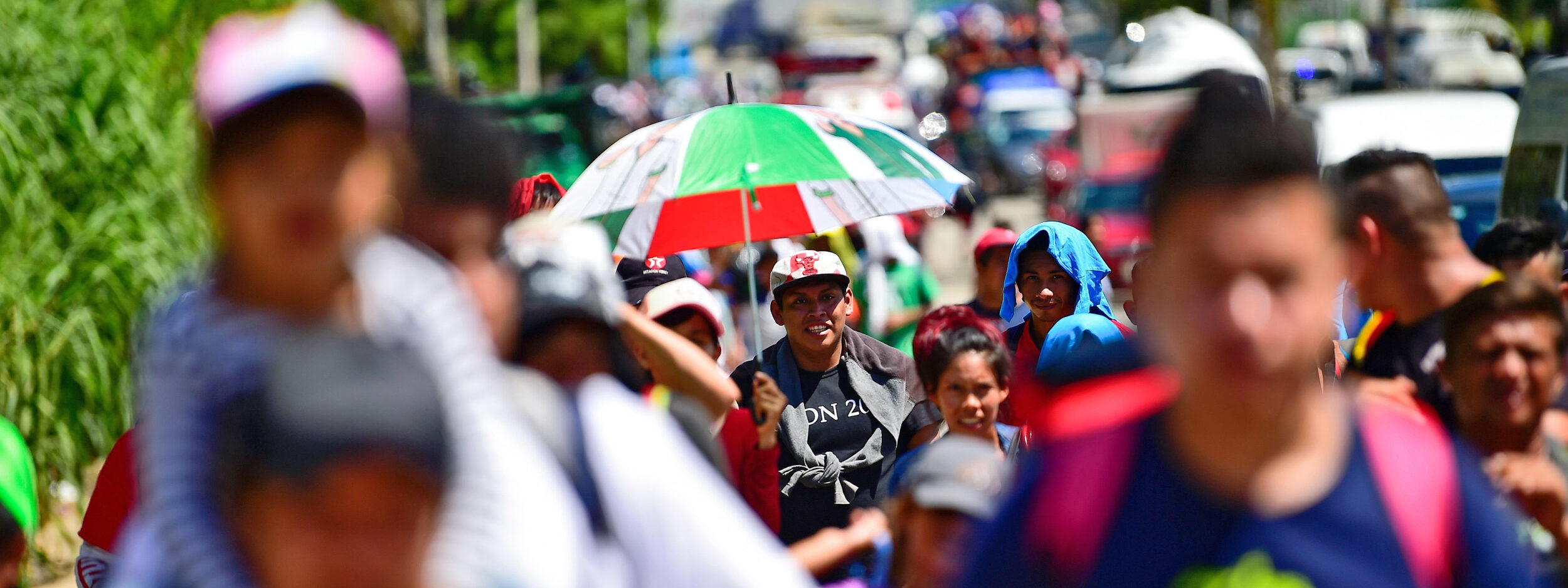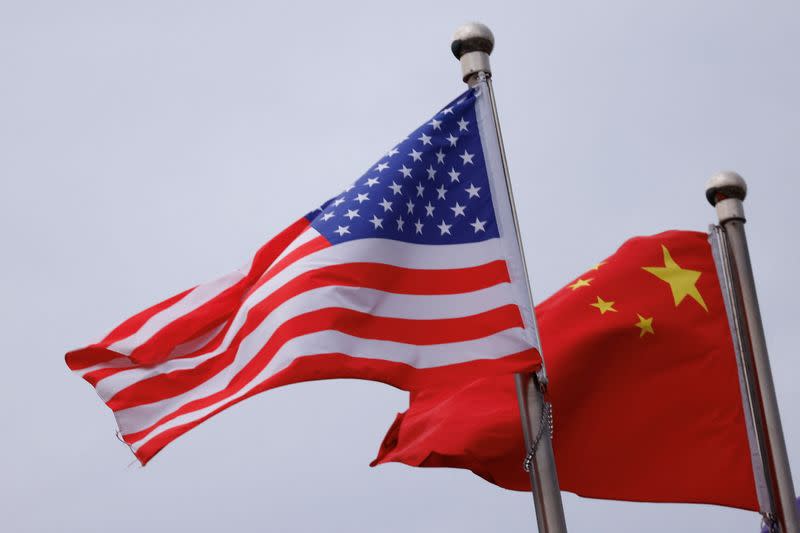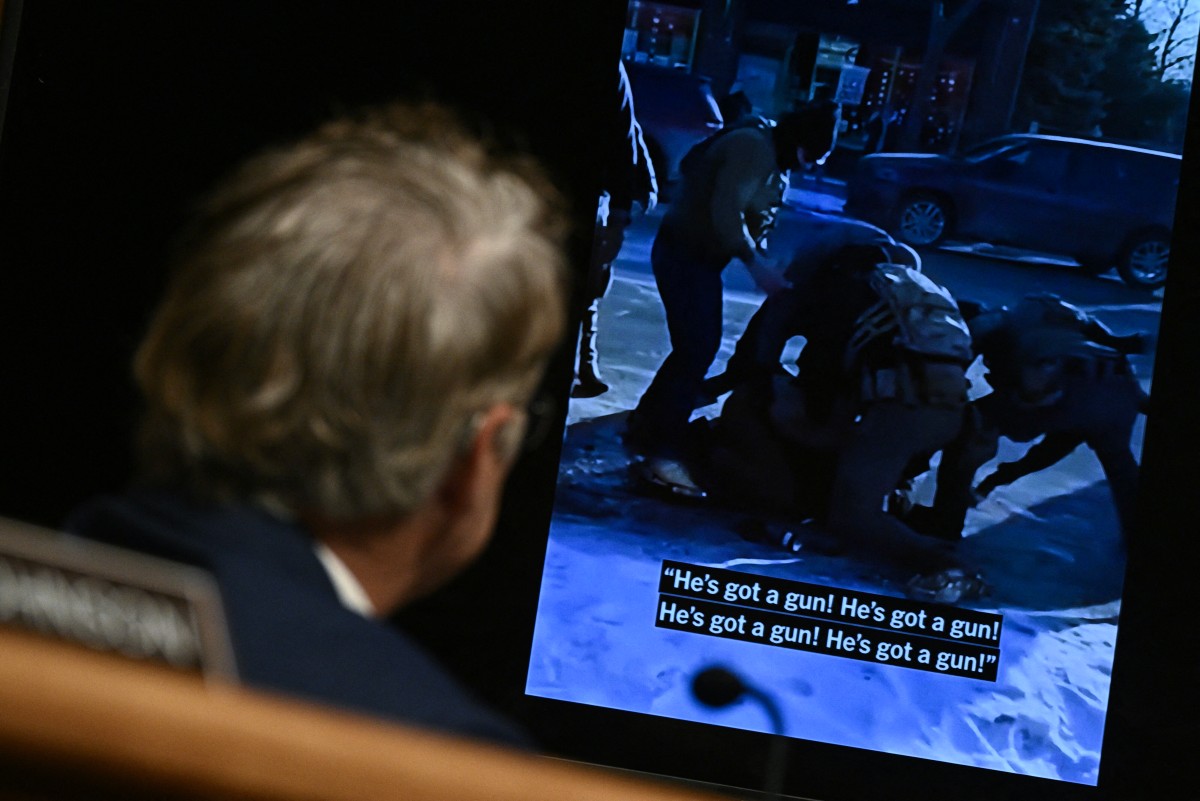International
On the road with a migrant caravan leaving Honduras

AFP
Hundreds of men, women and children gathered early Saturday morning in the parking lot of San Pedro Sula’s main transit hub, on the edge of the northern Honduran city.
Before the sun rose, many had already departed on foot, carrying the few belongings they had in backpacks or bags towards Corinto, a small Honduran border town on the other side of the mountains.
While their final destination is the United States, their main goal is “a better future for their family,” said a Nicaraguan who provided only his first name, Ovaldo.
Originally from the Nicaraguan capital Managua, he lamented that the situation in his country “is quite difficult,” and his family faced “a very hard road.”
He was accompanied by about 500 other migrants from a variety of countries including Honduras, Haiti, Venezuela and Nicaragua.
Some had even crossed the ocean from Africa.
They will join a nearly endless flow of people attempting to cross into Guatemala, then Mexico and ultimately the United States — which most will not manage to do.
At the Corinto border crossing, the group had arrived all together but broke into smaller groups to go through Guatemalan immigration.
Those who were missing identification or proof of a negative Covid-19 test were sent back into Honduras, according to an AFP photographer on the scene.
Migrants who do make it past will still have more than 1,200 miles (2,000 kilometers) until the US border.
Guatemalan authorities said about 150 people entered the country at unauthorized crossings because they lacked the papers to get in.
A group of about 100 migrants who got past immigration controls were stopped in the jurisdiction of Izabal, near the border, where they threw stones and blunt objects at security forces.
The clashes injured a dozen officers who were trying to get the migrants to turn back, officials said.
The last caravan to leave San Pedro Sula was in January 2021, and contained about 7,000 people.
It was broken up in Guatemala, when hundreds of soldiers attacked the migrants with sticks and tear gas, forcing them to return to Honduras.
Migrants in Saturday’s caravan said they were risking the dangerous journey for multiple reasons: to escape violence from drug traffickers and gangs, but also to start anew after natural disasters such as floods and droughts upended their lives.
International
Florida judge sets 2027 trial in Trump’s $10 billion lawsuit against BBC

A federal judge in Florida has scheduled February 2027 for the trial in the lawsuit filed by U.S. President Donald Trump against the BBC, in which he is seeking $10 billion in damages for defamation.
Trump accuses the British broadcaster of airing a misleading edit of a speech he delivered on January 6, 2021, which, he says, made it appear that he explicitly urged his supporters to attack the U.S. Capitol in Washington.
The president filed the suit in December in federal court in Florida, alleging defamation and violations of a law governing business practices when the program was broadcast ahead of the 2024 election.
Trump is seeking $5 billion in damages for each of the two claims.
Lawyers for the BBC unsuccessfully asked the court to dismiss the case, arguing that Trump had not suffered a “legally recognizable harm,” since the investigative program Panorama, which included the edited footage, aired outside the United States.
International
Head-of-state diplomacy key to guiding China–U.S. ties, Beijing says

Head-of-state diplomacy plays an irreplaceable strategic guiding role in China–United States relations, Chinese Foreign Ministry spokesperson Lin Jian said on Thursday during a regular press briefing, when asked about high-level exchanges between the two sides.
Lin added that in a recent phone call, U.S. President Donald Trump once again expressed his intention to visit China in April, while Chinese President Xi Jinping reiterated his invitation.
Both sides remain in communication regarding the matter, the spokesperson said.
Lin noted that the essence of China–U.S. economic and trade ties lies in mutual benefit and win-win outcomes.
“Both parties should work together to implement the important consensus reached by the two heads of state, injecting greater certainty and stability into China–U.S. economic and trade cooperation, as well as into the global economy,” he said.
International
Trump administration to end special immigration operation in Minnesota

The administration of Donald Trump is bringing to a close its special operation targeting illegal immigration in the northern state of Minnesota, border czar Tom Homan announced Thursday, following weeks of unrest and the fatal shootings of two activists by federal agents.
Thousands of federal officers had been deployed to Minnesota in December to carry out large-scale raids against undocumented immigrants.
The operations triggered strong reactions from residents and advocacy groups, leading to daily confrontations and the deaths of two people who were shot by federal agents.
“I proposed, and President Trump agreed, that this special operation should end in Minnesota,” Homan said during a press conference in the state capital, Minneapolis.
“A significant drawdown began this week and will continue into next week,” he added.
Homan indicated that similar enforcement efforts could be launched in other cities.
“Next week we will redeploy the agents currently here back to their home stations or to other parts of the country where they are needed. But we will continue to enforce immigration laws,” he said.
-

 Central America5 days ago
Central America5 days agoGuatemala isolates Barrio 18 leader after attacks that killed 11 police
-

 International3 days ago
International3 days agoU.S. Health Department says CDC grants no longer match agency priorities
-

 International2 days ago
International2 days agoOver 50 Civil Groups Urge House to Impeach DHS Secretary Kristi Noem
-

 Central America2 days ago
Central America2 days agoGuatemala to Phase Out Longstanding Medical Cooperation Agreement with Cuba
-

 International3 days ago
International3 days agoDespite homicide drop, overall deadly violence remains high in Mexico: study
-

 International3 days ago
International3 days agoICE Arrests Reach 379,000 Under Trump, Testimony Shows Amid Minnesota Shootings
-

 International3 days ago
International3 days agoMEPs Approve Plan That Could Fast-Track Rejection of Some Asylum Claims
-

 International3 days ago
International3 days agoSheinbaum Urges Mexico to ‘Jealously’ Guard Sovereignty at Air Force Anniversary
-

 International3 days ago
International3 days agoJet Fuel Crisis Hits Cuba: Flights Disrupted, Air Canada Cancels Services
-

 International2 days ago
International2 days agoNew York’s New Archbishop Names Óscar Romero as His Favorite Saint
-

 International17 hours ago
International17 hours agoHead-of-state diplomacy key to guiding China–U.S. ties, Beijing says
-

 International3 days ago
International3 days agoMexico Rises Slightly to 141st in Global Corruption Perceptions Index 2025
-

 International17 hours ago
International17 hours agoTrump administration to end special immigration operation in Minnesota
-

 International17 hours ago
International17 hours agoFlorida judge sets 2027 trial in Trump’s $10 billion lawsuit against BBC
-

 International2 days ago
International2 days agoExclusive Tucson Neighborhood Shaken by Disappearance of Savannah Guthrie’s Mother
-

 International3 days ago
International3 days agoChile Unveils Latam-GPT to Give Latin America Its Own AI Model


























